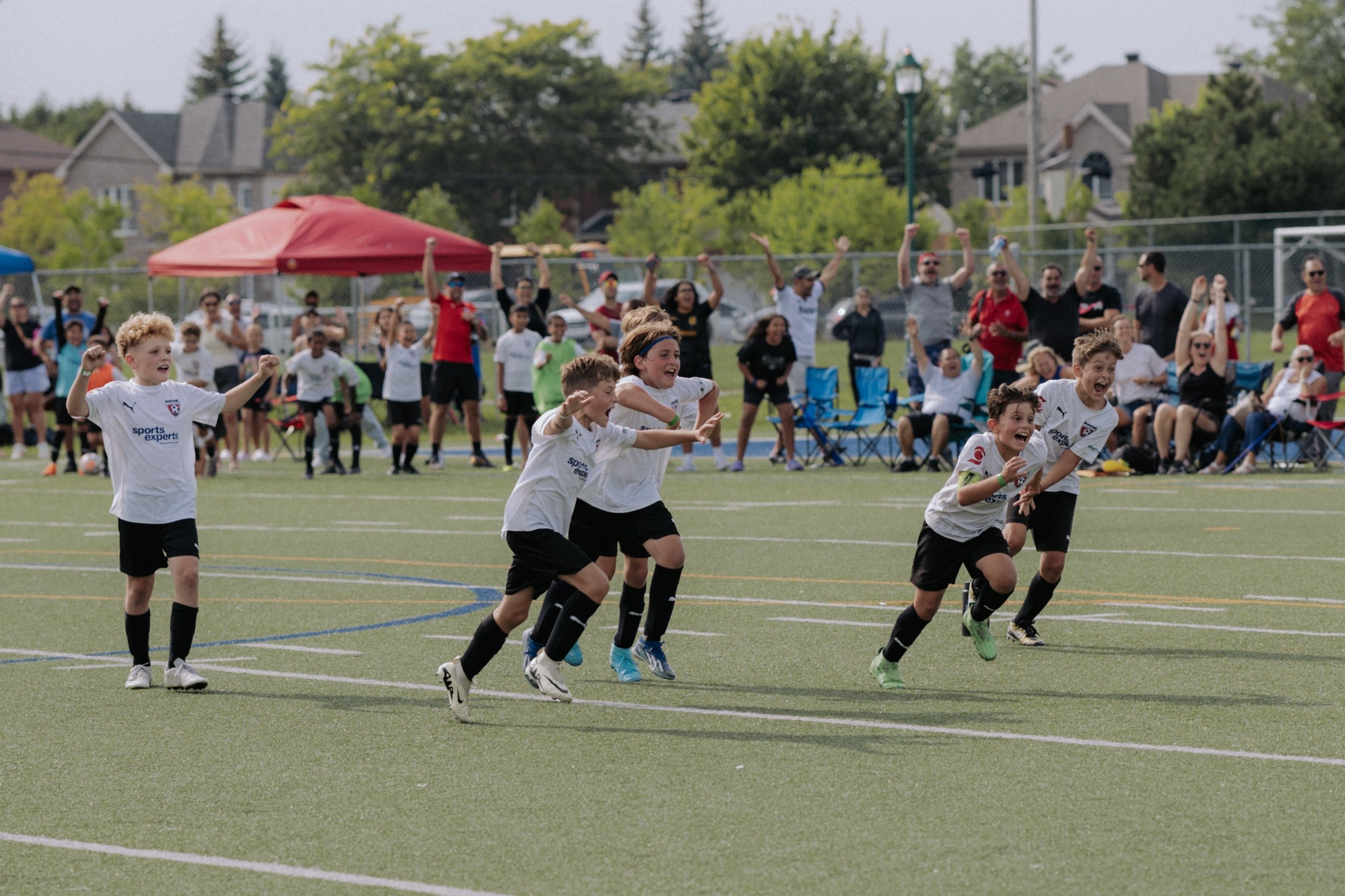
PARENTS
We ask parents to understand that everyone is in their learning phase.
THE COACHES
Lakeshore Soccer Club coaches, who are parent volunteers, receive training from the technical director and join certification programs to support your children.
THE PLAYERS
Encourage players to learn and grow by praising their efforts and supporting them with positive feedback.
THE REFEREES
Our club relies on young referees who have taken on a big responsibility. They attend referee school taught by the club's chief referee and must earn a minimum grade of 85% to become a referee.
THE PARENTS
As a parent, it's crucial to encourage your child to play the game in a positive manner, while also recognizing and appreciating the contribution of the dedicated volunteer coaches and referees who assist in enhancing your children's skills.
-
The 5 Things Parents Should Say to Their Player
(Bruce Brownlee, USSF "C" License, Atlanta, GA)A lot of soccer parents with good intentions give a 30 minute lecture, covering all the players supposed deficiencies and giving playing advice, in the car on the way to each match. The kids arrive far off their optimal mental state, and dreading the critique they are likely to hear, whether they want it or not, on the way home. Kids who are messaged in this way tend not to play badly, they just tend to not play, possibly to avoid making mistakes.
The easiest way to detect this problem is just to ask the player if it is a problem. Kids are more than willing to share this grief. The easiest way to correct this problem is to speak to the parents, as a group, about your expectations, and to cover this as a routine problem. Many of the parents will recognize themselves if you can present this problem with humor and illustrate the importance of the kids having fun and arriving in a good state of mind.
For best results, parents should memorize and use the following:
Before the Match
I love you.
Good luck!After the Match
I love you.
It was great to see you play. -
Keep the touchline vibe positive with enthusiastic support for hardworking players. Your encouragement fosters teamwork and player growth.
Avoid criticizing referees or players; it hampers team spirit and sportsmanship. Refs may react negatively or request you to leave, both distracting.
Don't coach from the sidelines; consult coaches instead. Collaborate to aid player development.
Give space to players, coaches, and refs; don't crowd the touchlines or goal area to prevent interference.
Remember, it's just a game. Your attitude impacts the team's mood and success. Coaches will address disruptive behavior; stay tolerant. Persistent issues may result in removal from the field area. Coaches won't argue with parents during games.
-
Let Coaches Coach: Entrust coaching duties to the professionals. Avoid overcoaching your child, which can be confusing and hinder their performance.
Support the Program: Get involved through volunteering and fundraising to bolster the team.
Be Your Child's #1 Fan: Unconditional support is crucial. Don't withdraw love based on performance.
Root for All Players: Encourage teamwork and learning opportunities when teammates excel.
No Bribes or Incentives: Leave motivation to the coaching staff to maintain proper concentration.
Encourage Direct Communication: Teach your child responsibility by having them talk to coaches about any issues.
Display Appropriate Game Behaviour: Stay focused on the controllable aspects and be a positive presence.
Monitor Stress, Eating, and Sleep: Keep an eye on stress levels, diet, and rest.
Maintain Priorities: Help your child balance soccer with school, relationships, and other life aspects.
Embrace Reality: Encourage a focus on effort and growth rather than just results.
Keep Perspective: Soccer is just one part of life; don't let it overshadow everything.
Have Fun: Enjoy the journey of growth and self-improvement, both on and off the field.




